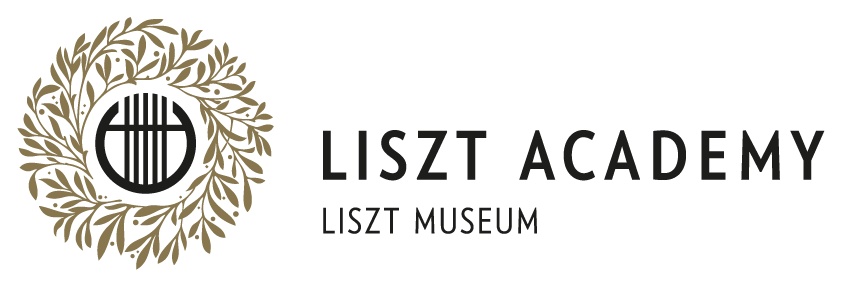Ferenc Erkel, the director of the Academy of Music
The Hungarian National Royal Academy of Music began its activities in 1875. The president and professor of the piano masterclass was Franz Liszt, while the director and head of the piano faculty was Ferenc Erkel.
Composition was taught by Robert Volkmann. Kornél Ábrányi senior, the secretary general of the Academy, taught theoretical and historical subjects, and Sándor Nikolits was professor of music theory. While the international fame of Liszt provided from the beginning a good international reputation for the Academy, the organizing of every-day life was in the hands of Erkel, who dealt with the timetable, the curriculum, the organizing of exams, and also was in charge of the furniture, the music library, and the proper functioning and development of the whole institution. The Academy of Music opened its doors on 14th November 1875 in the appartment of Liszt, with an inaugural speech by Erkel.

Our exhibition presents the work of Erkel as the director pf the Academy (exhibition rooms of the Museum) and as a professor (entrance hall, ground floor).
The historical part of the exhibition presents the most important events of the first twelve years of the Academy, in which Erkel was its director. Erkel and Liszt had similar ideas about the the development and the future of the Academy as a Hungarian cultural institution. The exhibition presents next to Erkel's documents the letters of Liszt, which illustrate that Liszt and Erkel agreed in using the books by Kornél Ábrányi as textbooks, and in collaborating with Hungarian instrument makers (piano, organ), etc.
Under Erkel's diection the Academy obtained its own premises in 1879, which initiated a new phase in the development of the Academy: the establishment of new departments, the building of an organ on the podium of the main hall, the employment of new teaching staff , and the admission of an increased number of students. The exhibition presents documents relating to the professors and students of the Academy, in order to give an appropriate picture of the work of the director. The very personal letter from the violin professor Károly Hubay mirrors the good relationship between director and staff, the oath of Jenő Hubay being a special moment in the life of the Academy.
The documents preserved in the archives of the Academy give us a glimpse into the activities of the director: his duties, problems, his successes. The proceedings of the professors' conferences inform us precisely about the organizing of the teaching activity, curriculums, timetables, subjects, etc.

The Academy had to face great diffuculties and struggled for long years to remain in existence. If Liszt and Erkel had not stood up for it, it would have had to close. In the Winter of 1879 Erkel payed the heating billsof the Academy out of his own salary. When Károly Huber unexpectedly died, Erkel took over his classes, although he already held two positions as a teacher and as a director. He simply wanted to assure continuity to the hardly established new department.
The exhibition displays next to the documents a few objects too, among them the seal of the Academy. We can see the printed seal in a book left by Liszt to the Academy. Liszt left all his books and scores which he used in Budapest to the Academy. His example was later followed by others.
We can also see the document in which Ferenc Erkel was informed about the donation of emperor Franz Joseph I. to the library of the Academy. The emperor presented the new institution with the complete edition of Mozart's works. Another document attests that the music publishing house Rózsavölgyi presented the Academy with the latest publications by Hungarian composers.
On the ground floor part of the exhibition we receive information about Erkel's youth, about his studies and the sites which were of major influence in forming him as a pianist and conductor. We meet the personality of the teacher Erkel through the memoirs of Kornél Ábrányi, and through letters addressed to him by his pupils. Erkel was highly concerned about the development and career of his students; as conductor of the orchestra at the National Theatre he obtained permission for the best students of the department of composition to have their compositions performed by the orchestra under the direction of Erkel's son, Sándor Erkel.
Some of Erkel's students became acknowledged and renowned musicians: Károly Aggházy, István Thomán, Jenő Hubay. We can see their letters from their years of study, and also their compositions and teaching methods from the time when they became famous.

The aim of the exhibition is to present a very important period in the life of the Hungarian Academy of Music through one of the most important leading personalities in its history. In October 1875, Liszt congratulated Erkel on his appointment as the director of the Academy of Music. His words describe vividly the role he attributed to Erkel, and his high esteem:
"Esteemed Director, my Dear Friend,
You have been standing for and supporting the music of Hungary in the most appreciated way with your musical works for more than 30 years. To patronize and develop it is the duty of the Academy. Your deliberate approach as director is an undertaking for the continuity and success of the matter. What I have to work at alongside you cannot be cancelled as it happens that it is in perfect accordance with you."



